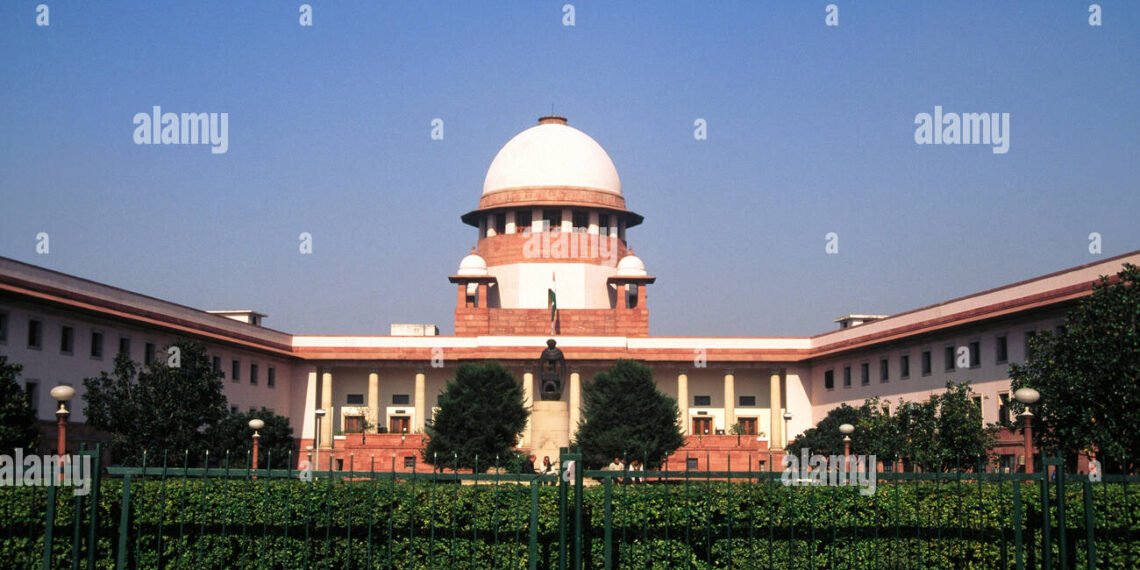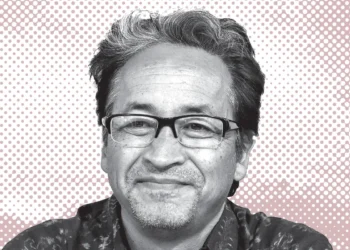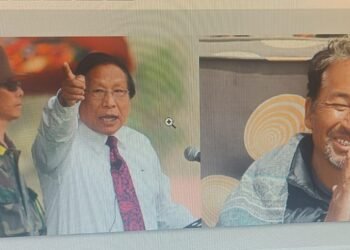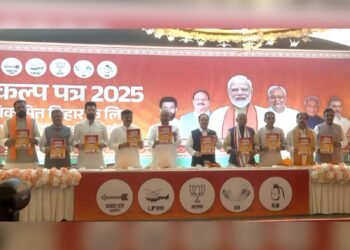The court capped non-Muslim members in Waqf Boards but did not strike down their inclusion, urging Muslim ex-officio representation wherever possible.
BY PC Bureau
New Delhi, September 14 – The Supreme Court on Saturday stayed the operation of certain provisions of the Waqf (Amendment) Act, 2025, while hearing a batch of petitions challenging its constitutionality.
A Bench led by Chief Justice of India BR Gavai and Justice AG Masih passed the interim order while hearing a batch of petitions filed by political leaders, religious bodies, and civil rights groups. The verdict, which had been reserved in May, brought partial relief to petitioners challenging the sweeping amendments introduced earlier this year.
Collector’s Powers Curbed
Criticising the sweeping authority given to district Collectors under the law, the court said an executive officer cannot adjudicate on citizens’ personal rights.
“The Collector cannot be permitted to adjudicate the rights of personal citizens, and this will violate the separation of powers. Till adjudication happens by the tribunal, no third-party rights can be created against any party. The provision dealing with such powers to the Collector shall remain stayed,” the Bench ruled.
Five-Year Practice Clause Stayed
The court also paused the clause requiring that a person must have practised Islam for at least five years before declaring a waqf.
“Without any mechanism, it will lead to exercise of arbitrary power,” observed CJI Gavai, stressing that the provision would remain inoperative until rules are framed by State governments.
Non-Muslim Representation Limited
On the contentious inclusion of non-Muslims in Waqf Boards, the court upheld the provision but capped the numbers.
“Not more than three non-Muslim members should be included in a Waqf Board, and not more than four in the Central Waqf Council,” the Bench clarified, adding that, as far as possible, ex-officio members should be Muslim.
Registration Mandate Upheld
The SC did not strike down the mandate for registration of waqfs, noting that similar provisions already existed in earlier laws. However, the court extended the timelines for compliance, details of which will be specified in its final judgment.
The petitions had argued that the 2025 amendments undermined the autonomy of the Waqf system, restricted religious rights, and violated constitutional guarantees.
READ: Trump Slams “Illegal Aliens” After Beheading of Indian Man
Provisions Not Stayed
-
Non-Muslim Members in Waqf Boards: The court did not strike down the provision allowing non-Muslims to be nominated to Waqf Boards. But it directed that, as far as possible, ex-officio members should be Muslim. It also capped the number of non-Muslim members: no more than four in the Central Waqf Council and three in State Waqf Boards.
-
Registration Mandate: The requirement for registration of Waqfs was upheld, with the court noting that similar provisions already existed in the 1995 and 2013 Acts. However, the Bench extended the timelines for registration, details of which will be specified in the full judgment.
Background
The amendments of 2025 had drawn widespread criticism for introducing conditions such as:
-
removal of the “waqf by user” provision,
-
inclusion of non-Muslim members in Waqf boards,
-
five-year practice requirement to create a waqf,
-
allowing government officers to adjudicate encroachment disputes,
-
invalidating waqf created over ASI-protected monuments,
-
restrictions in scheduled areas,
-
limiting women’s representation, and
-
renaming the Waqf Act, 1995 to the “Unified Waqf Management, Empowerment, Efficiency and Development Act.”
-
Breaking
Supreme Court stays Waqf Act provision requiring 5 years of Islamic practice to create a Waqf
The Supreme Court of India has stayed the provision in the Waqf Amendment Act, 2025, that requires a person to be a practitioner of Islam for five years in order to create a… pic.twitter.com/NsW8I6fqLR
— Maktoob (@MaktoobMedia) September 15, 2025
Petitioners include AIMIM MP Asaduddin Owaisi, TMC MP Mahua Moitra, Indian Union Muslim League, Jamiat Ulema-i-Hind, and several opposition parties such as RJD, SP, CPI and DMK. On the other side, BJP-ruled states including Assam, Rajasthan, Chhattisgarh, Uttarakhand, Haryana, Maharashtra, and most recently Kerala, have filed interventions supporting the law.
Earlier, the Centre had assured the court that during the pendency of the case, non-Muslims would not be appointed to Waqf boards or councils, and that existing waqfs would not be de-notified or have their status altered.











